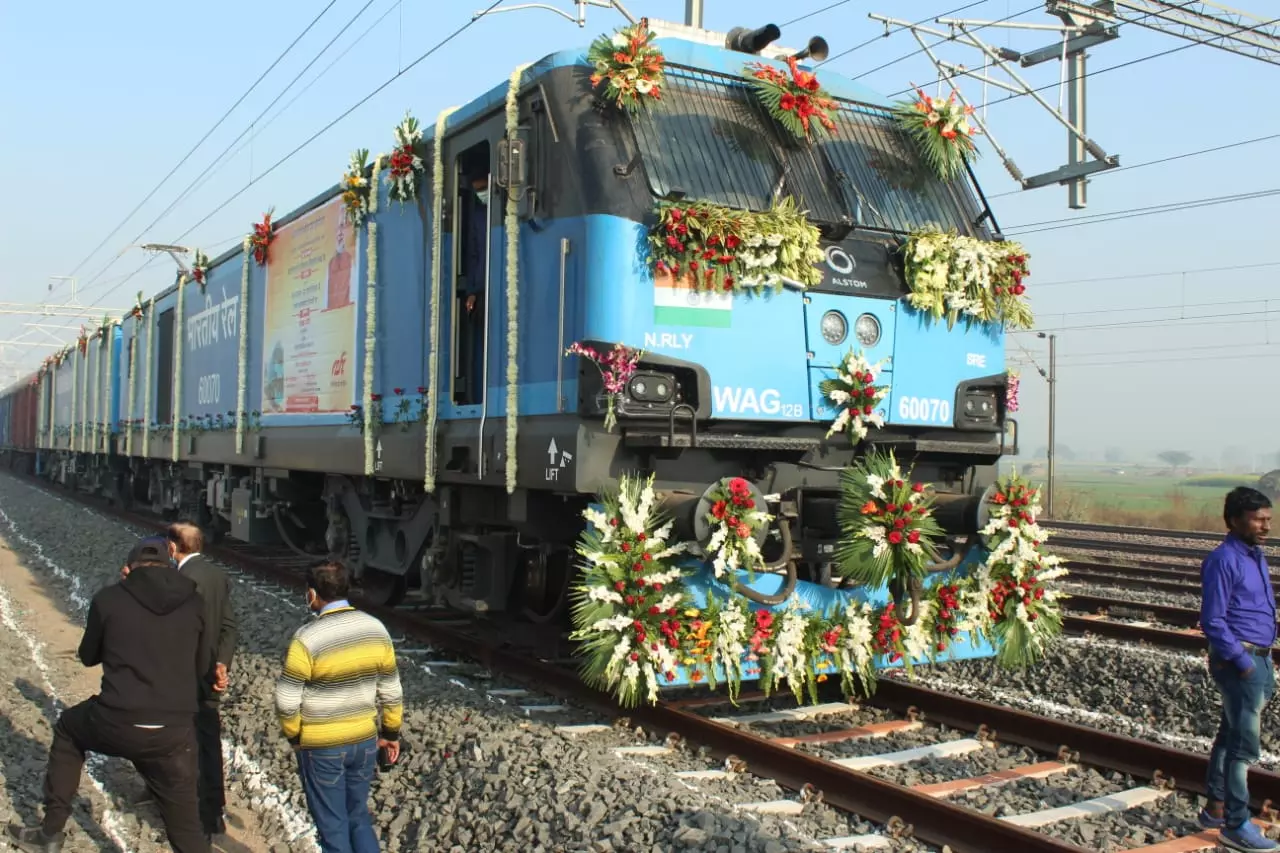Freight corridor cargo movement up 142 pc in FY24

Chennai: Dedicated Freight Corridors witnessed 142 per cent increase in cargo carried in FY24 against the previous year.
Increasing dependence on rail transport in cargo movement has seen the road toll revenue growth moderating to single digits in the current fiscal.
A total of 1272 track kms of Dedicated Freight Corridor (DFC) sections were completed and commissioned in FY24, resulting in 42 per cent increase in daily train operations, from 170 trains per day in FY23 to 241 trains per day in FY24, as per the annual report of Dedicated Freight Corridor Corporation of India.
This surge in operations saw a 142 per cent increase in cargo movement to 119,129 Gross Ton Kilometers (GTKMs) in FY24. Around 96.4 per cent of the total 2,843 kms network, spanning 56 districts across 7 states along the eastern and western corridors has been completed. DFCs handle over 10 per cent of the Gross Tonne Kilometres (GTKMs) of railways. DFCCIL has also operated over 1000 Truck on Train trips on Western Dedicated Freight Corridor.
A total of Rs 10,576 crore was spent for capital expenditure related to project execution of freight corridors in FY24. As of March 31, 2024, Rs 94,091 crore has been spent in executing the DFC projects. DFCCI clocked Rs 4,484 crore revenue from operations against Rs 3,141 in the previous year, but saw a net loss of Rs 29.59 crore.
The increasing usage of freight corridors was one of the main reasons behind the moderation in growth of road toll revenues in FY25. The aggregate toll road revenue growth is projected to moderate to 5.5 per cent to 6 per cent in FY25 against 12 per cent in FY24 and 21.2 per cent in FY23. In Q1 FY25, the toll revenue growth stood at 3.8 per cent and it was 4.8 per cent in Q2FY25.
The 2QFY25 traffic growth of around 1.5 per cent was lukewarm even after considering the impact of monsoon during June-September. The traffic growth in the second half of a financial year is generally better. However, the inter-modal shift in the commercial vehicle space is likely to have a bearing on traffic growth, finds Ind-Ra.
